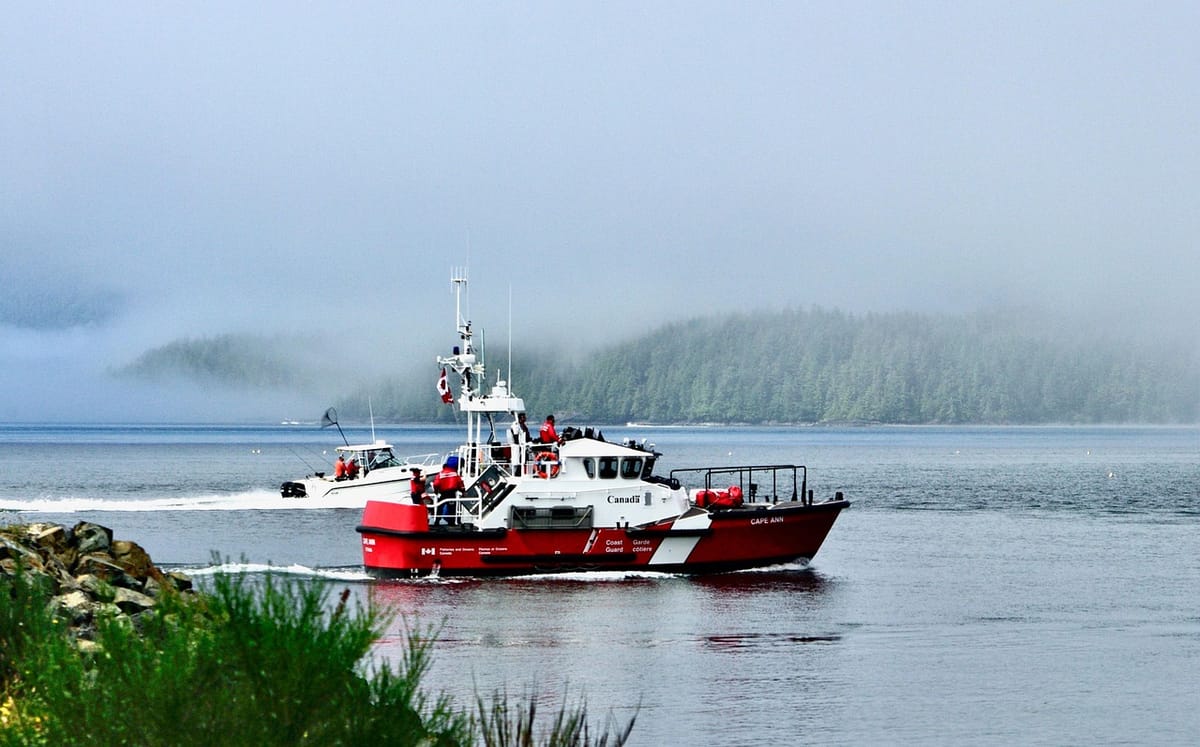
By Elke Porter | WBN News Vancouver | May 9, 2025
The Canadian Coast Guard (CCG) in British Columbia is a cornerstone of maritime safety, environmental protection, and economic support. Headquartered in Victoria, the CCG oversees operations along British Columbia’s rugged coastline, part of Canada’s 243,000 kilometres of shoreline—the longest in the world, according to Natural Resources Canada.
Approximately 1,200 personnel serve in British Columbia, trained at the Canadian Coast Guard College in Sydney, Nova Scotia, in critical skills such as navigation, engineering, environmental response, and marine communications. Operating 24/7, the CCG responds to maritime emergencies, conducts icebreaking, maintains aids to navigation, and coordinates pollution responses, often in challenging weather conditions.
The CCG is vital to Canada’s maritime economy, contributing to the safe movement of vessels and supporting an industry valued at over $200 billion annually, according to Fisheries and Oceans Canada. It collaborates with Fisheries and Oceans Canada for fisheries enforcement and provides platforms for scientific research. In remote and Arctic regions, the CCG reinforces national sovereignty through its federal presence.
The CCG is deepening ties with Indigenous communities through initiatives like the Indigenous Community Boat Program, which bolsters coastal resilience and emergency preparedness. The CCG also enhances ecosystem protection by responding to marine pollution and enforcing protections for endangered species, such as the Southern Resident killer whale, a critical focus in British Columbia’s Salish Sea.
Looking forward, technological advancements like improved vessel traffic management systems and innovations in sustainable fishing practices are shaping Canada’s marine safety framework. As marine traffic grows and climate change intensifies, the Canadian Coast Guard in British Columbia remains a steadfast protector of our coasts, communities, and marine environment.
On July 29, 2024, the Canadian Coast Guard in British Columbia executed a dramatic rescue of a sailboat captain who was found severely hypothermic after drifting for up to five hours in the ocean near Cortes Island, northwest of Powell River. The operation began when a 13-metre sailboat was discovered abandoned on the rocks of Cortes Island. The Joint Rescue Coordination Centre (JRCC) in Victoria swiftly deployed a military C-130 Hercules search plane, a CH-149 Cormorant rescue helicopter, and multiple CCG vessels, including an inshore rescue boat.
Crews searched the stranded sailboat and determined it had been occupied earlier that day. After an extensive search, one of the CCG vessel crews spotted the missing sailor, who was wearing a yellow lifejacket, floating in the channel between Cortes Island and Hernando Island. The sailor was suffering from severe hypothermia but was alive, thanks to the lifejacket, which the CCG noted was critical to his visibility and survival. The captain was promptly rescued and received medical attention.
The CCG emphasized the importance of wearing proper safety equipment, stating, “Without the yellow lifejacket, it is unlikely that responders would have been able to find the missing captain and save his life” [Source: bc.ctvnews.ca,]. This rescue underscores the CCG’s rapid response capabilities and coordination with military assets, highlighting their critical role in saving lives along British Columbia’s challenging coastline.
#Canadian Coast Guard #BC Maritime Safety #Southern Resident Killer Whale #Indigenous Partnerships #Marine Conservation #Coastal Resilience #WBN News Vancouver #Elke Porter
Connect with Elke at Westcoast German Media or on LinkedIn: Elke Porter or contact her on WhatsApp: +1 604 828 8788


